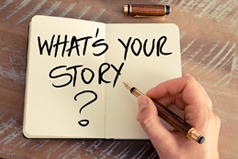What is a Voting Entity?
A Voting Entity (VE) is an affiliation of CoDA groups within a state, region, or country. Voting Entities hold regular meetings, comprised of group service representatives (GSRs) who have been elected by their individual CoDA group. A formally recognized CoDA Voting Entity is eligible to have (2) voting representatives, called delegates, attend the annual world CoDA Service Conference (CSC). Delegates bring VE concerns to the CSC and, in turn, bring CSC Fellowship information back to their VE. GSRs then bring VE and CSC information back to their individual CoDA meetings. This two-way flow of information benefits the entire CoDA community, and specifically enhances meetings by making members aware of new literature, website enhancement, CoDA events, and changes that affect CoDA as a whole.
In any organization, levels of management are necessary to connect and coordinate localized activities with broader levels of planning, information distribution, and organization. The VE organization may provide a bridge between Intergroups (community service groups) and CoDA Inc. Every CoDA member is welcome and encouraged to attend all CoDA service meetings.
In CoDA we refer to this service structure as the “Inverted Pyramid,” with all CoDA fellowship members at the top of the pyramid, who inform their GSRs, who inform their Intergroup, who elect delegates to the CSC. At CSC, our trusted servants tend to the fellowship’s needs. Without the Voting Entity structure, the voices of members could not be heard.
(Excerpted from The Fellowship Service Manual (FSM) and “Building CoDA Community – Healthy Meetings Matter” booklet)
What is an Intergroup? An Intergroup/CSG (CoDA Service Group) can be made up of six to ten, or more committed CoDA members from various meeting groups. In CoDA, these members are usually called Group Service Representatives (GSRs) who each represent a CoDA meeting from their local area meetings. An Intergroup/CSG may also serve as a Voting Entity if decided by group conscience. (from IMC Guidelines)
- Healthy meetings connect with the CoDA Fellowship beyond the meeting room walls. Groups join together to form ‘Intergroups’, to accomplish things that a single group cannot, such as maintaining up-to-date meetings lists and sponsoring events. The Intergroups conduct regular business/service Group Conscience meetings involved in and supporting the running of CoDA.
- Strong Intergroups are the key to the success of CoDA in general. CoDA Intergroups are made up of Group Service Representatives (GSRs) from area meetings and interested CoDA members from the local Fellowship.
- All CoDA groups are encouraged to send a GSR to Intergroup meetings. All members of the Fellowship are welcome to attend and participate in their Intergroup. A sense of community at the local level leads to success in attracting and sustaining the involvement of members of the fellowship in service work and in community building activities. Some consider it a way of practicing and demonstrating responsibility and accountability to self and to others, while working a program of recovery and remaining open to Higher Power’s will.
(Excerpted from the FSM, and “The Newcomer’s Handbook” and “Building CoDA Community – Healthy Meetings Matter” booklets)
What are the advantages of connecting meetings to form an Intergroup?
Responses from members (sharing experience, strength and hope):
- Having a voice
- Being the voice from your group and to your group (if you are a Group Service Representative)
- Connecting with other members
- Maintaining a local meeting list; Creating a regional website
- Pooling resources- i.e. people power for organizations of events, obtaining literature in bulk, copying in bulk
- Sharing different ideas and support for putting on events including:
- Scholarships for members to attend events
- Speaker potlucks
- Holding a business meeting associated with a retreat/convention to get interest in service
- Super seminars/ workshops
- Having a bookstore or ordering in bulk
- Practicing our recovery skills, using the traditions and carrying the message (Tradition Twelve)
- Working as a group (you don’t have to do it all yourself)!
- Joining together to support the Voting Entities in sending delegates to the CoDA Service Conference.
What to do when you do not have representation? Contact the Issues Mediation Committee (IMC)! The IMC assists in the development and support of Voting Entities. They handle requests to recognize Voting Entity delegate’s election process as well as requests from Voting Entities to divide into two or more entities. Additionally, the IMC helps to facilitate representation at the CoDA World Service Conference (CSC).
- Please see the document Guidelines for the Development and Structure of Intergroup and Voting Entities for detailed information and answers to frequently asked questions.
- The IMC facilitates dispute mediation for Voting Entities, Intergroups, and other CoDA entities as needed. (Please see the Fellowship Service Manual, pp. 14-16 & 35-37, for more information).
- Travel Reimbursement Opportunities (TRO) are available through the IMC for representatives from a region to attend the CoDA World Service Conference (CSC)
Please also see Worldwide Support for more elaboration, and for support for CoDA worldwide.
Members: We are looking for Intergroup and Voting Entities members to share their materials with us such as your formats, suggestions and guidelines. Please make sure you are correctly listed on the CoDA Area Contacts in the US and Worldwide. Any Websites should refer to the CoDA website guidelines and disclaimers.
RESOURCES: Please click on the following areas for additional resources and materials, if available:
| CoDA literature available through CoRE |
| Other CoDA resources |
FEEDBACK & SUBMISSIONS FOR THIS PAGE: The Outreach Resource Guide (ORG) is a work in progress which depends on contributions from you, our fellowship members. Please submit suggestions and materials by going to the Submissions page for further instructions.




Recent Comments